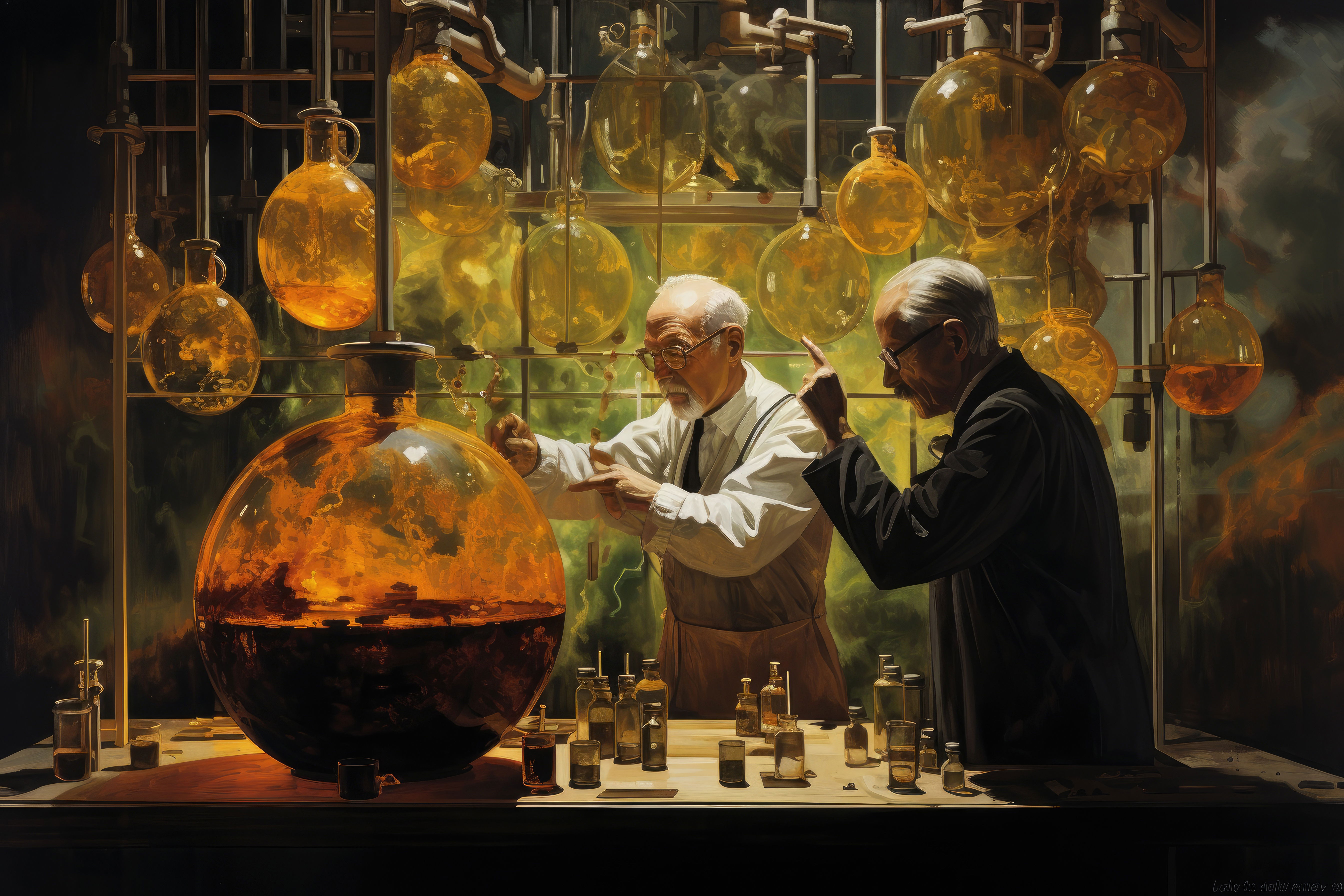History of Science: Biographies of Famous Scientists and Their Discoveries in 2025
Introduction
Science is not merely a collection of facts but a tapestry woven by brilliant minds whose curiosity reshaped our world. In 2025, as we mark anniversaries like the 400th year since Galileo's telescopic revelations and reflect on the centennial of quantum mechanics' foundations, the biographies of famous scientists remind us that discovery springs from human endeavor—flawed, persistent, and profoundly impactful. From Galileo's defiance of dogma to Marie Curie's radioactive perseverance, Albert Einstein's cosmic visions, and Alan Turing's computational genius, these figures didn't just uncover truths; they ignited revolutions. Rosalind Franklin's crystalline insights unlocked DNA's double helix, while modern echoes in CRISPR editing honor her legacy.
This narrative chronicles ten pivotal scientists, blending their personal stories with landmark discoveries, drawing from 2025 archival releases like the Smithsonian's Einstein Papers and the upcoming Turing Institute biography. Amid AI's rise and climate's press, their tales underscore science's enduring power: Not isolated genius, but collaborative quest. Let's journey through time, celebrating the dreamers who dared to ask "why?"
Galileo Galilei: The Father of Modern Science (1564-1642)
Galileo, born in Pisa amid Renaissance fervor, transformed astronomy from myth to method. A mathematics professor, he heard of Hans Lippershey's 1609 telescope and crafted his own, magnifying 20x. Peering at Jupiter, he spotted four moons orbiting—defying geocentric dogma. His 1610 "Sidereus Nuncius" (Starry Messenger) detailed these "Medicean Stars," dedicating them to Medici patrons for protection.
Galileo's discoveries shattered Ptolemy's Earth-centered universe: Venus's phases proved heliocentrism, while sunspots revealed a dynamic Sun. His 1632 "Dialogue Concerning the Two Chief World Systems" pitted Ptolemy against Copernicus, earning Inquisition charges for heresy. House arrest followed, but his sketches influenced Kepler's laws.
Impact: Galileo's empirical method—observation over authority—birthed experimental science. 2025's Galileo 400 celebrations, per ESA, include VR recreations of his telescope views, inspiring STEM diversity. Legacy: "Measure what is measurable, make measurable what is not"—Galileo's dictum endures in LIGO's gravitational waves.
Isaac Newton: Gravity's Architect (1643-1727)
Newton, a Cambridge recluse during plague quarantine, penned his 1687 "Principia Mathematica" under an apple tree—legend, perhaps, but the fruit symbolized universal laws. His three laws of motion and gravity equation (F = G m1 m2 / r²) unified celestial mechanics, explaining orbits from moons to comets.
Discoveries: Calculus (co-invented with Leibniz) enabled precise modeling; optics experiments proved white light's prismatic spectrum, birthing spectroscopy. As Master of the Mint, he stabilized Britain's economy post-South Sea Bubble.
Personal: Orphaned young, Newton's irascibility fueled feuds, yet his alchemy pursuits hinted at mysticism. 2025's Newton 400 symposium at Cambridge revisits "Principia" manuscripts, linking to quantum gravity quests.
Legacy: Newton's framework powered Apollo; 2025's LISA mission tests relativity in space. "If I have seen further, it is by standing on the shoulders of giants"—Newton's nod to predecessors.
Marie Curie: Radioactivity's Pioneer (1867-1934)
Poland's Maria Sklodowska defied gender barriers, earning Paris scholarships to study physics. With husband Pierre, she isolated polonium and radium from pitchblende, coining "radioactivity" in 1898. Her 1903 Nobel in Physics (with Becquerel and Pierre) made her the first woman laureate; 1911's Chemistry Nobel (solo) made her the first twice.
Discoveries: Radium's isolation advanced X-rays, aiding WWI battlefield medicine—Curie drove "Little Curies" mobile units. Yet, radiation's toll claimed Pierre in 1906 and her in 1934 from aplastic anemia.
2025's Curie Centennial, per UNESCO, spotlights her mobile labs in global exhibits, inspiring women in STEM amid #MeToo science reckonings.
Legacy: Curie's elements treat cancer; her notebooks, radioactive, remain sealed till 2040.
Albert Einstein: Relativity's Visionary (1879-1955)
Bern's patent clerk dreamed of light's constancy, birthing 1905's special relativity: E=mc² revolutionized energy, powering nukes and stars. General relativity (1915) curved spacetime, predicting black holes and GPS corrections (38 km/day accuracy).
Discoveries: The Photoelectric effect (1921 Nobel) founded quantum theory; Bose-Einstein condensate (1924) enabled superfluids. Exiled from Nazi Germany, Einstein's Princeton years warned of atomic bombs, co-signing the Szilard letter to Roosevelt.
2025's Einstein World Year of Physics, per APS, celebrates E=mc²'s 120th with VR relativity rides, tying to JWST's black hole images.
Legacy: Einstein's thought experiments inspire AI; "Imagination is more important than knowledge."

Alan Turing: Computing's Father (1912-1954)
Cambridge's Turing cracked Enigma in WWII, shortening the war by 2-4 years—saving 14-21M lives. His 1936 "On Computable Numbers" birthed the Turing Machine, theoretical computers underpinning modern tech.
Discoveries: The Morphogenesis theory (1952) modeled patterns like animal stripes; AI's "Turing Test" (1950) probes machine intelligence.
Persecuted for homosexuality, Turing's 1954 suicide at 41 sparked 2025's UK pardon anniversary, with Manchester's Turing Institute unveiling an AI ethics code.
Legacy: The Turing Award honors CS; 2025's quantum computing leap echoes his universal machine.
Rosalind Franklin: DNA's Unsung Hero (1920-1958)
Cambridge's crystallographer captured DNA's Photo 51 in 1952, with X-ray diffraction revealing the double helix's B-form. Her data, shared without credit, fueled Watson and Crick's 1953 model—the 1962 Nobel went to them and Wilkins.
Discoveries: The Tobacco mosaic virus structure (1955) advanced virology; RNA studies prefigured mRNA vaccines.
Ovarian cancer claimed Franklin at 37; 2025's Franklin Day (July 25), per Rosalind Franklin University, honors women in STEM, with CRISPR exhibits crediting her diffraction techniques.
Legacy: "Science and everyday life cannot and should not be separated"—Franklin's humanism.
Other Icons: Brief Spotlights
- Charles Darwin (1809-1882): "Origin of Species" (1859) ignited evolution; 2025's Darwin Day events tie to CRISPR ethics.
- Ada Lovelace (1815-1852): First programmer; 2025's Lovelace Colloquium celebrates women in computing.
- Katherine Johnson (1918-2020): "Hidden Figures" mathematician; NASA's 2025 Johnson Day spotlights Black excellence.
2025 Reflections: Archives and Anniversaries
NASA's 2025 Apollo archives release 10,000+ photos, including Curie-inspired radium experiments. TheSpaceRace.com's 2025 digital exhibit juxtaposes Galileo’s sketches with JWST's nebulae.
Conclusion
Science history's biographies—from Galileo's moons to Franklin's helix—illuminate discovery's human spark. In 2025, as Einstein's relativity meets quantum frontiers, their legacies inspire. As Curie said, "Be less curious about people, more about ideas"—the stars await.